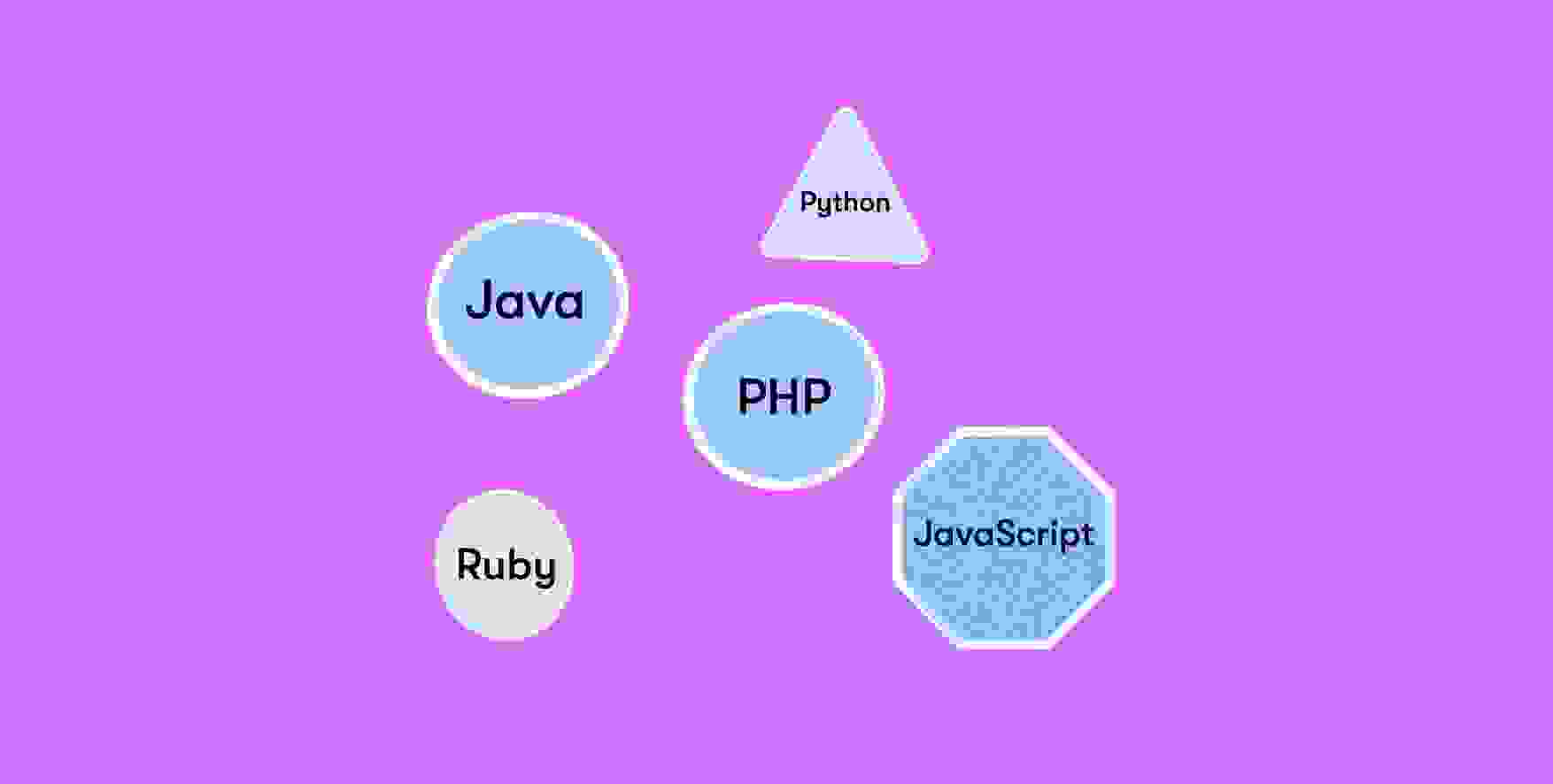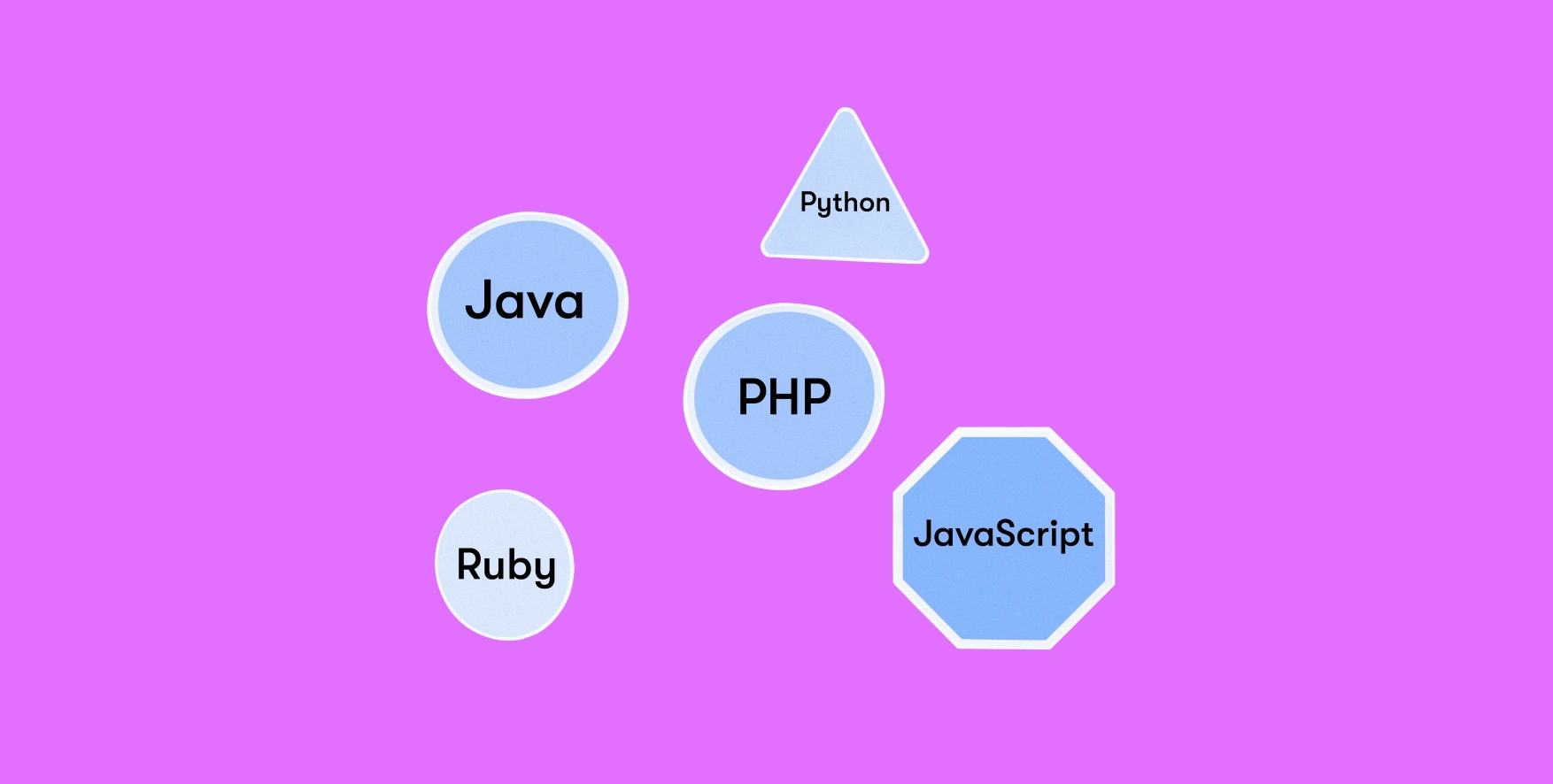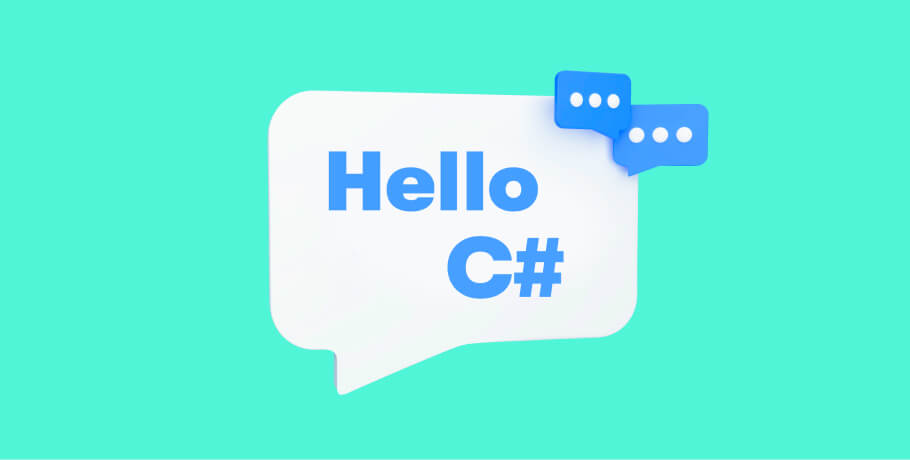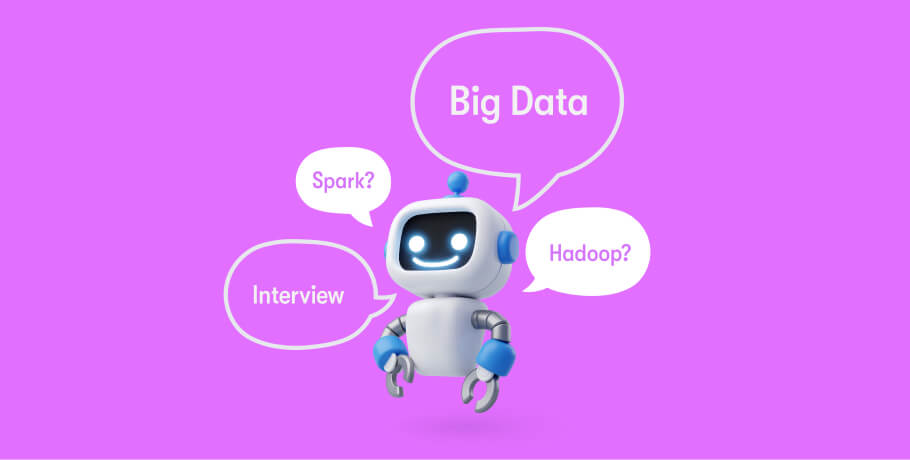PHP is one of the most popular programming languages. According to surveys by Stack Overflow, it has remained in the Top-10 for the past decade. It’s no wonder why — with its open source distribution, low barrier to entry, and reasonable performance it has earned its reputation. However, it is often not the best fit for many projects, either because of security concerns, fewer debugging options, or having more advanced alternatives. In this article, we will discuss what to use instead of PHP, how hard it is to switch from it to its competitors, and how to choose the best language for your project.
Java
Java is one of the most common alternatives to PHP for web development, though it is also used for mobile and desktop applications as well as various Internet of Things software (e.g. for smart cards and other similar devices). Java is a general-purpose language that has been on the market for over 20 years, and is widely considered efficient, secure, and reliable — almost all Fortune 500 companies use it in one way or another. This object-oriented programming language exists in a number of implementations, including Java SE and Jakarta EE (uses the same language but was renamed for copyright reasons).
The most notable feature of Java is JVM — Java Virtual Machine. It allows the language to adhere to the philosophy of “write once — run anywhere,” as any device capable of running JVM supports pretty much any program written in this language.
These are the advantages of using Java:
- Coding speed. Java developers can quickly write code in it and read other people’s work. This results in a high development speed and shorter time-to-market. Moreover, features like Java’s automatic garbage collection further increase this parameter.
- Security. Features like JVM, pointers, and Security Manager make Java-based applications inherently better protected than their counterparts in other languages (e.g. PHP).
- Documentation. Java is known for extensive and detailed documentation describing its features and peculiarities. As a result, many developers can quickly find answers to their questions, solving problems and delivering results faster.
- Cloud support. Jakarta EE is designed for distributed cloud-based applications and makes launching them faster.
However, Java isn’t perfect, as there are some disadvantages as well:
- Somewhat lower performance. Compared to certain other languages, Java code doesn’t run as fast. Although, it still overtakes PHP in this aspect.
- Higher memory requirements. JVM and automatic garbage collection take more RAM, which results in higher hardware demands.
JavaScript
There are many people who consider JavaScript (JS) the best PHP alternative for web development. It is the most popular programming language in the world, being used not just for web but for mobile and desktop development as well, thanks to many powerful frameworks.
Besides its cross-platform capability and flexibility, the fact that it is easy to work with and performs well also contribute to its popularity. It is used in companies like Uber, Netflix, and PayPal.
These are the pros of JavaScript:
- Full-stack. With this language, a developer can do both the server-side scripting and the client-facing interface. This means one person can do the job of two (or at least do more than with just PHP).
- Good performance. Thanks to Node.js, JavaScript code can be executed asynchronously (everything that can run at the same time, will — thus increasing the overall speed).
- Beautiful interfaces. JS has many dedicated options for building stunning visuals. PHP can’t do this at all.
But there are also cons:
- Vulnerabilities. JavaScript code can be viewed on the client side, which means it is easier for malicious actors to find security issues and exploit them.
- Lack of debugging options. Even in the few code editors that support JS debugging these features are rather weak compared to other languages.
Python
Python has exploded in popularity recently, thanks to its conciseness and efficiency in fields like machine learning. Currently, it is in the top 3 on the list of most popular programming languages. It is also a valid choice for web development, so people looking for an alternative to PHP should consider it.
Like other languages on this list, Python has a large community of users and extensive library support, which means some tasks can be made easier by integrating existing code.
This is what Python has going for it:
- Speed of coding. This language was designed to be concise and convenient. As a result, it takes 2 lines of Python code to do what PHP needs 5 lines for.
- Ease of debugging. Reading through code and polishing it is much easier in Python than in many other languages. This decreases the development time. In addition, there are other built-in features that speed up the development process further.
- Code reuse. Python functions and modules written for the web could be reused on other platforms without much trouble, which speeds up development if you need several apps done at once (e.g. a web and a desktop application).
However, Python is not perfect:
- Subpar performance. Python’s convenience comes at the cost of higher memory consumption and slower execution due to how it works with certain processes.
- Multithreading issues. By default, Python can’t work well with multithreading, which makes multi-user applications much slower. There are workarounds, but they take time and effort.
Ruby
Ruby is not as widespread as other programming languages on this list, but it is effective for many tasks and thus can be a good alternative to PHP. Ruby is typically used as a “Ruby on Rails” (RoR) combo which contains the scripting language itself and a web framework for it.
Its users include Twitter, Basecamp, and Kickstarter.
The advantages of Ruby are as follows:
- Development speed. Ruby on Rails allows developing and releasing applications faster thanks to a lot of built-in time-saving features and debugging support.
- Security. RoR allows making software that is secure by design — less vulnerable to cyberattacks, to put it simply. It also has a bunch of protections from common threats like mass assignment or SQL injection.
- Maintainability. It is easy to read and change Ruby code later on, which means less money and time spent on modifications.
However, there are some disadvantages:
- Smaller community. Ruby is much less popular than PHP or Java. This means there are fewer community-made solutions for it and fewer opportunities to speed up development by using ready-made libraries.
- Slower performance. It takes much more work to make Ruby software as fast as that written in other languages. This can bloat development budgets.
How hard is it to move from PHP to alternatives?
So suppose you’ve had a PHP-based website for a while and are looking to update it. Should you keep the PHP code or should you switch to another technology? And how hard would it be?
As is often the case in software engineering, the answer is “it depends.” In some cases, tried and true solutions are the best. In others, you stand to gain something, e.g. more speed, lower maintenance budget, better security, etc. This also depends on the nature of your project, as a simple website or an e-shop would have totally different requirements than a complex web application.
This is what you should note when deciding whether switching from PHP is the right move:
- Costs vs benefits. A total migration costs money. Would you gain enough to justify the expense?
- The amount of changes. PHP is used on the backend only. If you only need the visuals updated, you don’t have to rewrite the business logic. You can leave the PHP code untouched while improving the client-facing part of your system.
- Development costs. The salary of a PHP developer is similar to that of their JavaScript or Ruby colleague. However, in some cases, using one language (e.g. JS) would be more cost-effective, as one person can work on both frontend and backend tasks.
How to choose a suitable language
Choosing a suitable language for a project is a matter of picking the right combination of important aspects.
- Speed of coding. The faster you can write useful code, the sooner you’ll get your project to a market-ready state. If this is a priority for you, choose Python.
- Performance. Slow-loading websites and web apps irritate people and are penalized by search engines. This is especially pertinent to high-load applications that have to work with lots of users. Java is a solid choice for performance-demanding applications.
- Cross-platform compatibility. If you have additional projects underway (e.g. mobile apps to complement a web app), using the correct language and framework can save you a lot of money through code reuse. You can also use the same web backend for all apps, optimizing the expenses. If cross-platform compatibility is at the top of your list, use JavaScript.
- Security. For websites and web applications that process and/or store user data, investing in information and data protection is always worth it. Some languages are better at it than others. For sensitive applications, Java or Ruby would likely be the best choice.
Conclusion
PHP is still more than relevant. It has many things going for it, including simplicity, popularity, and a lot of web frameworks. However, alternatives for web development can overtake PHP in certain aspects. JavaScript works on both front and backends and allows reusing large chunks of code. Java runs faster. Python allows for faster coding speed, and Ruby is more secure. So consider your particular project requirements when choosing the right language.
FAQ

The EPAM Anywhere Editorial Team is an international collective of senior software engineers, managers and communications professionals who create, review and share their insights on technology, career, remote work, and the daily life here at Anywhere.
The EPAM Anywhere Editorial Team is an international collective of senior software engineers, managers and communications professionals who create, review and share their insights on technology, career, remote work, and the daily life here at Anywhere.
Explore our Editorial Policy to learn more about our standards for content creation.
read more




















